第13章 A Presidential Friend and a Boston Pilgrimage (1)
Edward Bok had not been office boy long before he realized that if he learned shorthand he would stand a better chance for advancement.So he joined the Young Men's Christian Association in Brooklyn, and entered the class in stenography.But as this class met only twice a week, Edward, impatient to learn the art of "pothooks" as quickly as possible, supplemented this instruction by a course given on two other evenings at moderate cost by a Brooklyn business college.As the system taught in both classes was the same, more rapid progress was possible, and the two teachers were constantly surprised that he acquired the art so much more quickly than the other students.
Before many weeks Edward could "stenograph" fairly well, and as the typewriter had not then come into its own, he was ready to put his knowledge to practical use.
An opportunity offered itself when the city editor of the Brooklyn Eagle asked him to report two speeches at a New England Society dinner.The speakers were to be the President of the United States, General Grant, General Sherman, Mr.Evarts, and General Sheridan.Edward was to report what General Grant and the President said, and was instructed to give the President's speech verbatim.
At the close of the dinner, the reporters came in and Edward was seated directly in front of the President.In those days when a public dinner included several kinds of wine, it was the custom to serve the reporters with wine, and as the glasses were placed before Edward's plate he realized that he had to make a decision then and there.He had, of course, constantly seen wine on his father's table, as is the European custom, but the boy had never tasted it.He decided he would not begin then, when he needed a clear head.So, in order to get more room for his note-book, he asked the waiter to remove the glasses.
It was the first time he had ever attempted to report a public address.
General Grant's remarks were few, as usual, and as he spoke slowly, he gave the young reporter no trouble.But alas for his stenographic knowledge, when President Hayes began to speak! Edward worked hard, but the President was too rapid for him; he did not get the speech, and he noticed that the reporters for the other papers fared no better.Nothing daunted, however, after the speechmaking, Edward resolutely sought the President, and as the latter turned to him, he told him his plight, explained it was his first important "assignment," and asked if he could possibly be given a copy of the speech so that he could "beat" the other papers.
The President looked at him curiously for a moment, and then said: "Can you wait a few minutes?"Edward assured him that he could.
After fifteen minutes or so the President came up to where the boy was waiting, and said abruptly:
"Tell me, my boy, why did you have the wine-glasses removed from your place?"Edward was completely taken aback at the question, but he explained his resolution as well as he could.
"Did you make that decision this evening?" the President asked.
He had.
"What is your name?" the President next inquired.
He was told.
"And you live, where?"
Edward told him.
"Suppose you write your name and address on this card for me," said the President, reaching for one of the place-cards on the table.
The boy did so.
"Now, I am stopping with Mr.A.A.Low, on Columbia Heights.Is that in the direction of your home?"It was.
"Suppose you go with me, then, in my carriage," said the President, "and I will give you my speech."Edward was not quite sure now whether he was on his head or his feet.
As he drove along with the President and his host, the President asked the boy about himself, what he was doing, etc.On arriving at Mr.Low's house, the President went up-stairs, and in a few moments came down with his speech in full, written in his own hand.Edward assured him he would copy it, and return the manuscript in the morning.
The President took out his watch.It was then after midnight.Musing a moment, he said: "You say you are an office boy; what time must you be at your office?""Half past eight, sir."
"Well, good night," he said, and then, as if it were a second thought:
"By the way, I can get another copy of the speech.Just turn that in as it is, if they can read it."Afterward, Edward found out that, as a matter of fact, it was the President's only copy.Though the boy did not then appreciate this act of consideration, his instinct fortunately led him to copy the speech and leave the original at the President's stopping-place in the morning.
And for all his trouble, the young reporter was amply repaid by seeing that The Eagle was the only paper which had a verbatim report of the President's speech.
But the day was not yet done!
That evening, upon reaching home, what was the boy's astonishment to find the following note:
MY DEAR YOUNG FRIEND:--
I have been telling Mrs.Hayes this morning of what you told me at the dinner last evening, and she was very much interested.She would like to see you, and joins me in asking if you will call upon us this evening at eight-thirty.
Very faithfully yours, RUTHERFORD B.HAYES.
Edward had not risen to the possession of a suit of evening clothes, and distinctly felt its lack for this occasion.But, dressed in the best he had, he set out, at eight o'clock, to call on the President of the United States and his wife!
He had no sooner handed his card to the butler than that dignitary, looking at it, announced: "The President and Mrs.Hayes are waiting for you!" The ring of those magic words still sounds in Edward's ears: "The President and Mrs.Hayes are waiting for you!"--and he a boy of sixteen!